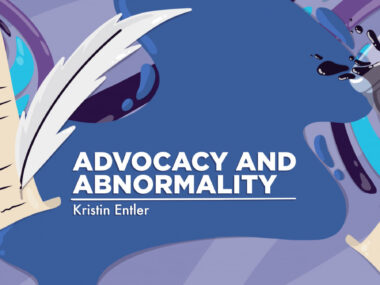Children on Symdeko, Orkambi show few sinonasal issues: Study
Findings suggest CFTR modulator use helps to ease chronic rhinosinusitis
Written by |

Children with cystic fibrosis (CF) who are being treated with Symdeko (ivacaftor/tezacaftor) or Orkambi (ivacaftor/lumacaftor) experience few to no symptoms of chronic rhinosinusitis and maintain a normal sense of smell, a study in Denmark found.
Although small, the study suggests that not only Trikafta, a triple combination of elexacaftor, tezacaftor, and ivacaftor, but also double combinations of CFTR modulators like those in Symdeko and Orkambi can help to relieve chronic rhinosinusitis, where the nose and sinuses remain inflamed for long periods of time.
“We found that [CFTR modulator use] has improved the sense of smell and taste along with decreasing the frequency” of chronic rhinosinusitis in this group of CF patients, the researchers wrote.
The study, “The criteria for chronic rhinosinusitis in children with cystic fibrosis are rarely fulfilled after initiation of CFTR modulator treatment,” was published in the Journal of Pathology, Microbiology and Immunology.
Study in 23 children on dual CFTR modulators set to move to Trikafta
Chronic rhinosinusitis causes symptoms such as a persistently runny or stuffy nose, facial pain or pressure, and a reduced sense of smell. Such symptoms make it difficult to breathe through the nose, which can worsen already existing respiratory symptoms of CF.
In addition to their known benefits on lung function, Vertex Pharmaceuticals’ CFTR modulators can be helpful in other ways. For example, Trikafta can help to clear bacteria from the sinuses, which are air-filled pockets in the skull. It also can ease symptoms and signs of chronic rhinosinusitis on CT scans in children and adults with CF.
Researchers in Copenhagen, Denmark, looked for changes in symptoms of chronic rhinosinusitis in a group of 23 children with CF, ages 6 to 12, who were scheduled to start treatment with Trikafta. Four were being treated with Symdeko — marketed as Symkevi in the European Union and U.K. — and 14 others with Orkambi. Five had not yet received any CFTR modulators.
Before starting on Trikafta, marketed as Kaftrio in Europe, all the children were tested using the 22-item Sinonasal Outcome Test (SNOT-22), which measures the severity of chronic rhinosinusitis and how it interferes with quality of life.
SNOT-22 rates symptom severity on a scale from zero to 110, with higher scores representing worse symptoms. In this study, SNOT-22 scores averaged 11.6 points, and most children (87%) scored in the eight- to 20-point range, indicating no or mild symptoms.
In the U-Sniff Test, a smell test to assess odor function, children averaged 9.4 points on a scale from zero to 12, where higher scores represent a higher number of correctly identified odors. Only four children had a poorer sense of smell than same-aged children from the general population.
No child met the established criteria for chronic rhinosinusitis
None of the children had a persistent lung infection, and most (78.3%) had no infection in the lungs at all. Also, no child met the clinical criteria for chronic rhinosinusitis, which must include at least two identifying symptoms — either a runny or stuffy nose, facial pain, or cough — continuing for more than 12 weeks (three months).
“None of the patients had symptoms of chronic rhinosinusitis lasting for more than 12 weeks, thus none of the patients fulfilled the criteria for [chronic rhinosinusitis],” the researchers wrote.
Among the five children who had not yet been treated with any CFTR modulator, all had mild symptoms of chronic rhinosinusitis, with an average SNOT-22 score of 9.2 points. One had a reduced sense of smell.
“Much to our surprise,” the researchers wrote, children with CF experienced “few sinonasal symptoms” before starting treatment with Trikafta.
“The few symptoms surprised us positively,” they added, noting that this made them reconsider the need for close monitoring of rhinosinusitis in these patients.







